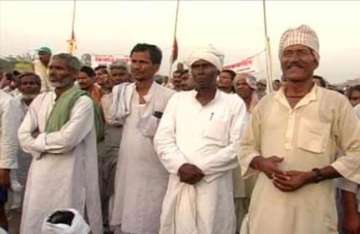The Supreme Court on Tuesday upheld the constitutional validity of reservation for backward classes in rural and urbal local bodies, including posts of chairpersons, and rejected the plea that the creamy layer should be excluded.
A five-judge Constitution bench headed by Chief Justice K G Balakrishnan, however, said the reservation benefits should not exceed the 50 per cent upper ceiling limit except in Scheduled areas.
"While access to higher education and public employment increases the likelihood of socio-economic upliftment of the individual beneficiaries, participation in local-self government is intended as a more immediate measure of empowerment for the community that the elected representative belongs to.
"The objectives of democratic decentralisation are not only to bring governance closer to the people but also to make it more participatory, inclusive and accountable to the weaker sections of society", the bench also comprising Justices R V Raveendran, D K Jain, P Sathasivam and J M Panchal said in a judgement.
The apex court passed the judgement on a bunch of petitions filed by various persons challenging the constitutional validity of Articls 243-D(6) and Article 243-T (6) which provided for reservation benefits to members of Backward Classes in local bodies and chairperson posts.
"Article 243-D(6) and Article 243-T(6) are constitutionally valid since they are in the nature of provisions which merely enable state legislatures to reserve seats and chairperson posts in favour of backward classes," the apex court said.
Rejecting the plea for excluding the creamy layer, it said reservation in local self-government are intended to directly benefit the community as a whole rather than just the elected representatives.
"It is for this very reason that there cannot be an exclusion of the creamy layer in the context of political representation.
"There are bound to be disparities in the socio-economic status of persons within the groups that are the intended beneficiaries of reservation policies. While the exclusion of the creamy layer may be feasible as well as desirable in the context of reservation for education and employment, the same principle cannot be extended to the context of local self-government," the bench said.
According to the apex court, at the panchayats' level, the empowerment of the elected individual is only a means for pursuing the larger end of advancing the interests of weaker sections.
"Hence, it would be counter-intuitive to exclude the relatively better-off persons among the intended beneficiaries from reservation benefits that are designed to ensure diversity in the composition of local bodies," the bench said. PTI
Latest India News
